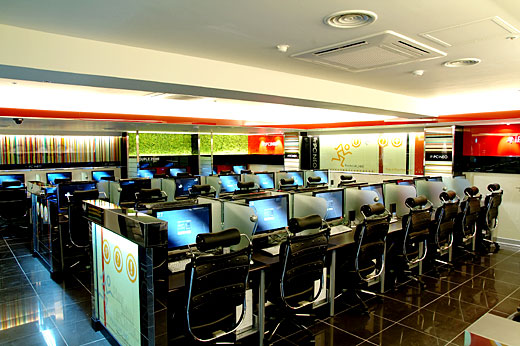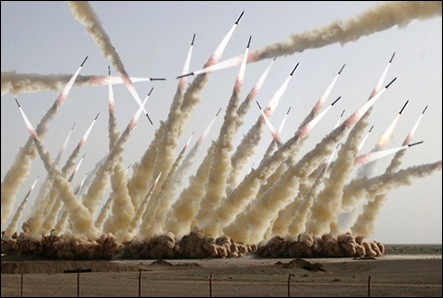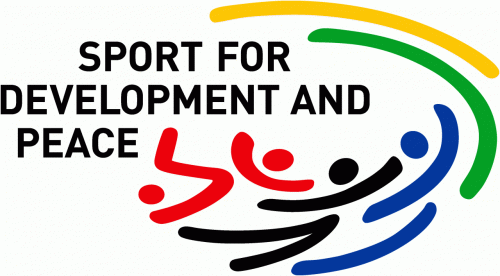
The summer of 2014 marked several important developments in the world of competitive gaming, or eSports. Most significant was the conclusion of the largest and most lucrative eSports tournament of all time, the Dota 2 International 2014. The prize pool for the tournament stands at an incredible 10,931,105 USD, with a grand prize of a whopping $5,028,308. Other games have had their time in the limelight as well. The top all-time earner in gaming, a South Korean Starcraft gamer named Lee Jae Dong, recently topped half a million dollars in tournament winnings, though he was soon surpassed by the Chinese winners of The International. Games like Dota and League of Legends have attracted record viewership on dedicated streaming sites like Twitch.tv. Twice in 2013, a progamer was granted an athlete visa to compete in America. Through these successes, the strange and unique culture of the professional gaming industry has been receiving more and more attention throughout the world.
Nowhere else has the culture of professional gaming taken hold more tightly than in the Republic of Korea. Though gaming has not met with the broad appeal that sports like soccer enjoy in countries around the world, eSports in Korea maintains a strong and dedicated fanbase unparalleled anywhere else. Successful competitors in Korea often attain rockstar status amongst its youth. Matches are regularly televised and housed in massive venues. Shrieking fans or groupies are not out of place at tournaments. It is not uncommon for South Korean couples to attend a competitive Starcraft 2 or League match, rather than see a movie. Universities are getting involved, offering special admission to top players.
Korea’s love affair with gaming arose, in part, logically as a result of Korea’s extensive computer and internet infrastructure. Korea’s strong economy throughout much of the 1970s, 80s and 90s, as well as its poor resource base led it to invest heavily in high-tech industry. It has become both an enormous domestic consumer and a heavyweight exporter. Korea has phenomenal internet penetration, with over 84% of the population using the internet.
Access translated into activity: in the late 1990s, with the release of Starcraft: Brood War, a science-fiction, real-time strategy (RTS) game, gaming in Korea exploded into a popular pastime, and, eventually, an industry unto itself. Thousands of South Korean youths flocked to the newly popular “PC bangs”, the Korean equivalent of Internet cafés, to play together. Eventually, Korea became home to some of the most successful e-sports groups, teams and competitions, mostly notably the Korean E-Sports Association (KeSpa) umbrella organization. With the support of game developers like Blizzard, the creator of Starcraft, progaming and PC bangs became cultural fixtures in Korea.

The prevalence of eSports in Korea has yielded predictable, though still shocking results in international competitions. The country dominates the RTS genre: the earnings gap between Korea and the runner-up, France, for Starcraft 2, is over seven and a half million dollars. Only 1 out of the top 25 earners in Starcraft 2 is not Korean. The dominance extends so far that non-Koreans in Starcraft are referred to as ‘foreigners.’
South Korea has helped to create a culture around video games that has been copied internationally. Now, some of the top players in games like Dota and Counterstrike are from Taiwan, Sweden or Ukraine. Competitive gaming as a whole is gaining interest throughout the world. The United States remains a massive market for competitive video games, though it has yet to produce stunning players in most top games. Despite this, the proliferation of video games, and its acceptance amongst the younger generation seems to only be increasing. With the recent rise of team-based titles like Dota and League, it is possible that video games may come to be seen around the world as a normal pastime among friends.
The competitive scene has been encouraged and has thrived due to the rising popularity of gaming at the grassroots level. Amateur gamers wishing to improve their skills can watch pros for techniques and inspiration. Hosting sites allow thousands of players to watch and chat together during a stream. Video games may now be moving towards an important landmark in the development of a real sport: having a viewership that does not actually participate in the game. Many viewers of competitive matches watch solely for the entertainment value they see in it, rather than for the improvement of their own play.

Yet competitive gaming is not a career choice available to most people. Most games require incredibly fast thinking and movement that is often unachievable for many, and even dangerous. Being successful requires a practice schedule and support that often puts players in front of screens for 10 hours a day or more. Injuries to the wrists and hands are common. The longevity of a progaming career is also short: the oldest Starcraft 2 player in Korea, Song ‘Stork’ Byung Goo, is 25. Aleksey “White-Ra” Krupnyk, a 33 year old Ukrainian Starcraft player, has been nicknamed “Grandpa toss”, a reference both to his age and his faction in-game. In a game like Starcraft, where players regularly top 300 actions per minute (5 actions per second), older players are often too slow to keep up.
For those that make it to the top, however, the payout can be immense. Several Starcraft players are nearing or have surpassed the half million mark. The incredible prize pools for League and Dota tournaments have minted “nouveau-richs” who will join the predominantly Korean old guard. The new highest earner, Chen “Hao” Zhihao, a Chinese DOTA player, has earned over one million dollars, as have his four teammates. As if large tournament payouts were not enough, players lucky enough to be recruited by a team often earn salaries, live in team houses and have other expenses paid by their sponsors. Though salaries are rarely disclosed, many players reportedly earn six-figure incomes, and the numbers are only rising in most games.
Despite its many successes however, competitive gaming faces persistent challenges. Counterintuitively, the most dangerous challenge has arisen in South Korea, the country that has embraced eSports the most passionately. In mid June the country’s parliament debated the ‘Game Addiction Law’, which would strictly regulate video games in Korea. The law marks a significant development in Korea’s close, yet complex relationship with gaming. In Korea, much like the rest of the world, gaming is often stigmatized as anti-social, unproductive and addictive.
South Korea’s attitude towards video gaming is one of passion and division, a microcosm of the wider struggle for eSports to gain acclaim and credibility worldwide. In the pursuit of acceptance, competitive gaming has made enormous leaps this year—but there is still far to go.




